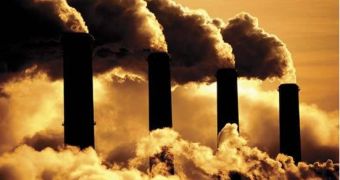The Emission Gap Report 2012, composed of 55 researchers coming from 20 countries, proves the actual situation of the global warming process as deeply concerning.
The United Nations Environment Programme's (UNep) officials stated that greenhouse gases are currently 14% higher than the amount needed in order to make possible keeping this century's temperature below 2°C.
The achievement would not be impossible, if radical measures were to be taken immediately, Bloomberg reports.
European governments' heads will gather for the UN Climate Change Conference (COP18) which takes place next week in Doha, Qatar. They are to come to an agreement on the measures to be taken for the situation to get stabilized.
“While governments work to negotiate a new international climate agreement to come into effect in 2020 they urgently need to put their foot firmly on the action pedal,” declared Achim Steiner, executive director of UNEP.
“The sobering fact remains that a transition to a low carbon, inclusive green economy is happening far too slowly.”
If the plan to stabilize greenhouse gases' estate by 2020 does not succeed, the further process would get both more difficult and much more expensive. The measures taken to cut gas emissions will cost up to 15% more than they do now.
UN's attention to the matter was especially drawn by a statement made this week by the International Energy Agency (IEA), according to which the main three greenhouse emissions in the atmosphere have hit a record. The IEA also suggested that humanity risks losing the chance of keeping the global temperature at a 2°C level by 2017.
“It is a reminder that time is running out but that the technical means and the policy tools to allow the world to stay below a maximum 2C are still available to governments and societies,” said Dr Monica Araya, lead author of Unep's study.

 14 DAY TRIAL //
14 DAY TRIAL //